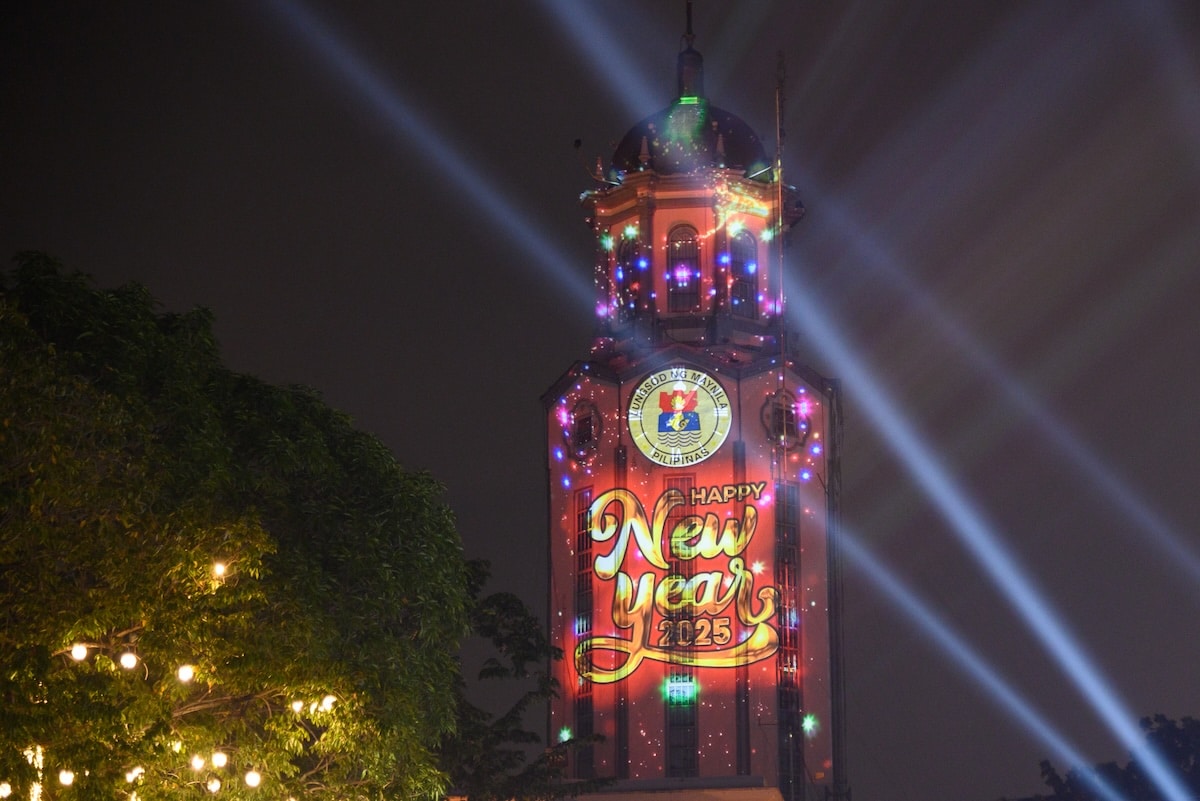
The clock tower of the Manila City Hall on New Year’s Day 2025. —Photo from the Facebook. page of the Manila Public Information Office
MANILA, Philippines — The air quality in Manila reached an “unhealthy” level on Wednesday following the New Year’s celebration, according to a Swiss air quality research firm IQAir.
IQAir reported that Manila recorded an air quality index (AQI) 166 as of 2 p.m. Wednesday.
“Good air quality ranges from 0 to 50, while measurements over 300 are considered hazardous,” the Swiss firm explained.
An “unhealthy” AQI has a range of 151 to 200, IQAir added.
READ: Heat, air pollution, disease: How climate change affects health
The primary pollutant identified was PM2.5, a particulate matter with a diameter of 2.5 microns or smaller — or about 30 times thinner than a human hair, according to the United States (US) Environmental Protection Agency (EPA).
“Of all air pollution measures, PM2.5 pollution poses the greatest health threat. Due to its small size, PM2.5 can remain suspended in the air for long periods of time and can be absorbed deep into the bloodstream upon inhalation,” IQAir noted.
According to IQAir, common man-made sources of PM2.5 are smoke from fireworks, motor combustion, power plant combustion, stoves, fireplaces, home wood burning, and smoking.
On the other hand, natural sources include dust, dirt, windblown salt, pollen, plant spores, soot, and wildfire smoke.
IQAir likewise noted that Manila’s PM2.5 concentration of 76.5 micrograms per cubic meter (µg/m³) is “currently 15.3 times the World Health Organization annual PM2.5 guideline value.”
The US EPA’s National Ambient Air Quality Standards also indicate that PM2.5 levels above 9.0 µg/m³ can be hazardous to human health.
Given the “unhealthy” air level, IQAir warned of increased risks to the heart and lungs among the general public.
“Unhealthy AQI measurements mean that there is an increased likelihood of heart and lung aggravation as well as health impacts among the public, particularly for sensitive groups,” the Swiss firm explained on its website.
To mitigate the effects of “unhealthy” air quality, IQAir recommends the public take precautions such as wearing pollution masks outdoors, refraining from ventilation, and using air purifiers.


